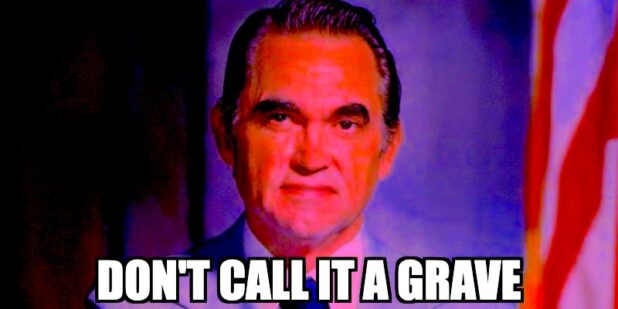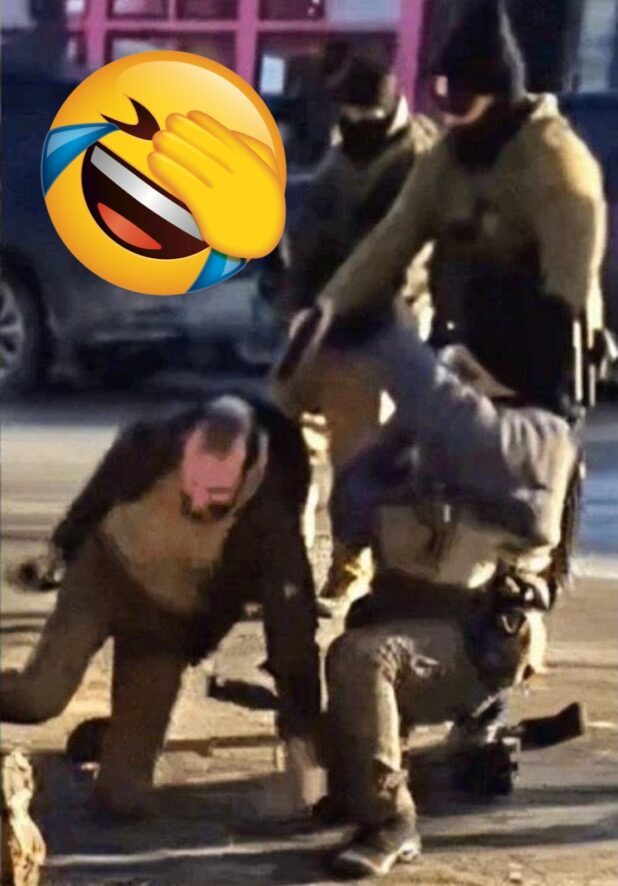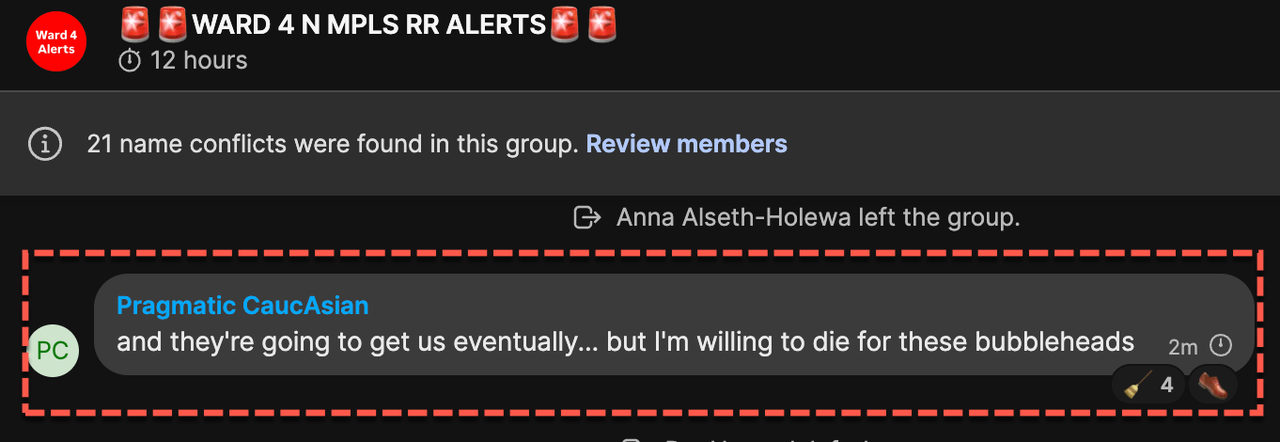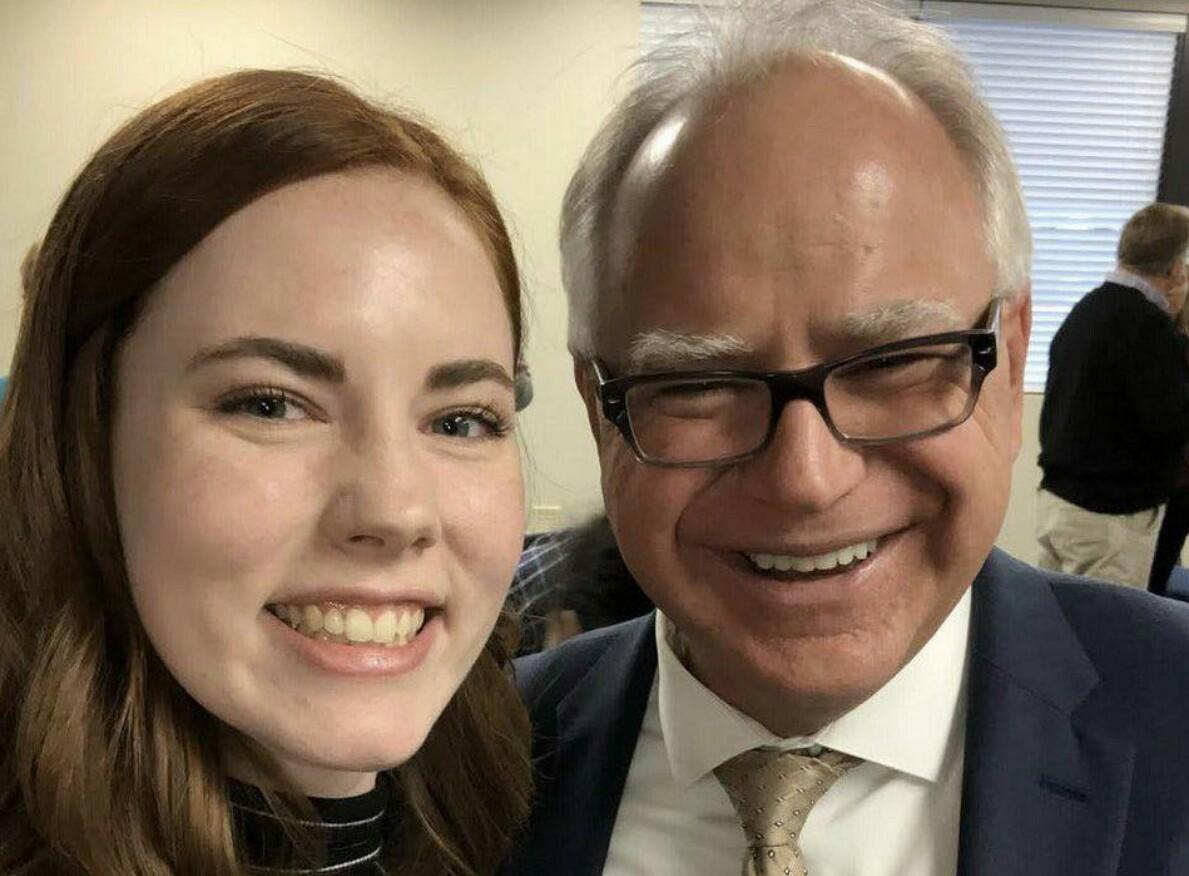Andrew Anglin on Minneapolis
Anglin: Jews Deliver a Gay and Retarded New World Order for Fat People and Women
This conflict, on both sides, is entirely manufactured. There is no possible way this ICE circus could deport tens of millions of people. In fact, the government claims they are only attempting to deport a few hundred thousand. You will not notice that. (After you’ve consented to a full deployment of masked federal cops on your streets, four years later, there might be 48.5 million illegal immigrants instead of 49.1 million. But of course their children will vastly make up for the difference, as will the tens of millions of Indians that will be brought in during that period.)
Meanwhile, the protesters against ICE are marketing a fantasy where they are protecting Anne Frank. It is all total nonsense.
Everyone is getting to know this new kind of government system we have recently been gifted. Some seem to like it, apparently purely as a result of a kind of BDSM fetishism, wherein an individual enjoys being stomped on and having their dog shot. Others are lashing out. Most are simply confused.
Between the unleashing of a domestic paramilitary force that just kills people and the christening of a mega-warmachine that openly presents itself as a gang of pirates, the United States has dropped any pretense of being something other than a totalitarian state which acts with impunity at home and abroad.
One can argue about how long we have been living under this type of a system without anyone saying it aloud. Certainly, those brave folks who were crushed while resisting forced integration in the South would tell you it has been a long time since the people of this country had the right to self-determination, and the millions of dead Germans, Vietnamese, Koreans, and Moslems would tell you that US adherence to “international norms” has always been a fraud. Regardless, we have entered into something totally new under “Donald Trump 2: Double Jew Up Your Ass” in that the government is no longer pretending that people have rights, no longer pretending there is such a thing as an international order.
Pretense is a type of fraud. But when the overwhelming majority of people believe in the pretense, it holds a lot of weight, as everyone acts as though the fraud is real. And, like rights and laws, which are abstractions, people acting as though they are real means they carry real weight, even if the government can and does violate them with impunity. When the pretense is gone, no one will or can act as though these sociological abstractions of rights and laws exist, which means they do not exist in any sense.
Enter Bellum Americanum.
Of course, it all remains very abstract, for at its core, it is nothing but a bunch of abstractions driving real world actions. This is why people are supporting this new system, some running around in a panic, some simply confused. The real world consequences of the abstractions are what matters and that is what people see. But no doubt, there is a struggle to connect the abstraction to its real world effects. People have spent more than 300 years getting lost in so many abstractions that it is sometimes very difficult to know where abstraction ends and where reality begins.
Start with some realities, we should. Aye, we should do.
It is a reality that a fat dyke and a Jew-face got killed by the cops. As a reality isolated in itself, most would likely chuckle at this, or perhaps ironically pour out a few sips of Coors Light. One would not have trouble arguing that as an isolated reality, it’s probably better those two are no longer with us, and certainly, anyone crying about these deaths could rightly be labeled a homo.
The fact that these two disreputable fiends were murdered by totally untrained morons in such a slapstick manner only makes it all the more attractive. There is a Looney Tunes vibe to all of it.
But what do the deaths mean? If we start with the deaths, then unwind the abstractions and connect them back to the reality situation? Is it just two random people you don’t like getting what they deserve? Or is it something much more important than that?
I believe it is something much more important than that, and yet I have found it virtually impossible to say that without people accusing me of defending fat dyke and Jew-face. It is so emotionally charged. It is like talking to rocks. But I will do my best to explain why I am against the federal government unleashing masked paramilitary forces to execute people in the streets, even if for the time being, I personally do not like the people they are executing.
As a rather obvious matter, we have now established a standard where militarized federal police can flood the streets and just start killing people with impunity and that after their deaths, women and Indians representing the government will go on TV and make obviously false claims about what happened. Maybe some smarmy welp on Fox News can argue the dyke had it coming because her car was so scary, but no one can argue that about Jew-face. He just got thrown on the ground and executed. Then the Indian who rules over us said we don’t have a Second Amendment (or if we do he is unaware of it) and if you have a gun the government can kill you.
The very emotional people defending this are defending it because they view the deceased as their enemies. But just whose enemies are being killed here? And why? Are they being killed because they are your enemies? Is the government your friend?
Regardless of what you think of fat dyke or Jew-face, they were murdered by the state because they were viewed as enemies of the state. They were not murdered because they are pro-immigrant. ICE is not really even an immigration enforcement group in anything but name at this point. They deport fewer immigrants under Trump than they did under Obama. They are primarily being unleashed on the streets to fight people who are organized to fight them and, without our analysis getting too complicated, it is pretty clear that there is a deeply symbiotic relationship between ICE and those fighting them in the streets, and that neither group represents the interests of any common people.
This conflict, on both sides, is entirely manufactured. There is no possible way this ICE circus could deport tens of millions of people. In fact, the government claims they are only attempting to deport a few hundred thousand. You will not notice that. (After you’ve consented to a full deployment of masked federal cops on your streets, four years later, there might be 48.5 million illegal immigrants instead of 49.1 million. But of course their children will vastly make up for the difference, as will the tens of millions of Indians that will be brought in during that period.)
Meanwhile, the protesters against ICE are marketing a fantasy where they are protecting Anne Frank. It is all total nonsense.
If we were living in reality, instead of this demented Teletubby hyperreality, people would demand the government use existing laws and existing law enforcement to calmly do pre-dawn raids on the people who are housing and employing the illegal immigrants. In a matter of months, none of these Anne Franks would have anywhere to live or work, and they would peacefully take their $3,500 checks and plane tickets home. By this time next year, 85% of illegal immigrants would have left. That’s the reality situation.
Donald Trump has no interest in the mass removal of illegal immigrants, ostensibly due to economic reasons, and so instead of punishing those housing and employing the immigrants, he is putting on this stupid circus of cruelty and death for the proles. It’s very similar to the totally incompetent Nero giving people bread and letting them watch people kill each other at the circus. In order for the circus to work, a bunch of morons have to come do violence against the fake immigration people. The violence of the “protesters,” who are actually using guerrilla warfare tactics, then justifies the violence of the state. The boomers and their allies cheer on the total militarization of domestic policing without thinking even days, let alone months or years, in advance.
If we can grasp that those being killed are being killed because they are enemies of the state, then the logical thing for us to ask ourselves is this: is there any chance that we or anyone we care about could ever under any circumstances be considered an enemy of the state? That question should not be very difficult to answer.
Let’s look.
The same guy saying this:
Is saying this:
You’ve probably seen some other things that particular individual has said. He’s the guy who said “starve away” about Palestinian children, and I guarantee if you typed something against Jews on the internet, he would say that same thing about your kids.
It’s a pretty specific group of people who are coming out in support of this new federal police force killing Americans.
There is no reason to belabor the point: all of the people supporting these ICE murders are the Israel people, and I promise you, every single one of those people cares a million times more about Israel than they do about illegal immigration. (Note: they all also, to a man, support mass “legal” immigration. So you can figure that one out. Or try to.)
What this means is that in the eyes of the people supporting these murders, people who are opposed to Israel and Jews are already enemies of the state, and therefore can already be shot in the streets without consequence.











